Anelka: Misunderstood - new Netflix documentary recaps boycotts, bans and fallouts
- Published
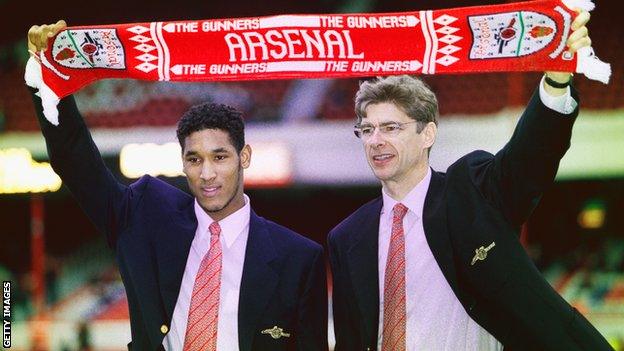
Nicolas Anelka with Arsene Wenger, signing for Arsenal in 1997
In the new Netflix documentary Anelka: Misunderstood, released this week, former team-mate Thierry Henry, says: "For me, there's a world of difference between what people think of Nico, and Nico himself."
On the pitch, former France and Arsenal striker Anelka won the European Championship, the Champions League, the Premier League with two clubs, and the FA Cup four times.
However, he was also expelled from the national side and sacked by West Brom, and was involved in a string of protests, bans and boycotts.
Now, the 41-year-old has told his side of the story, looking back on his biggest achievements and scandals.
1. He hated his time at Real Madrid
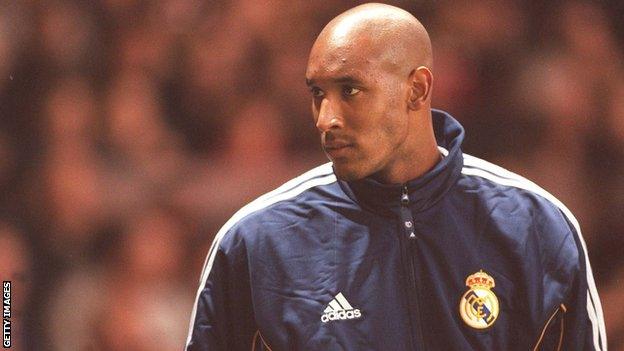
Anelka left Arsenal to join Real Madrid in 1999 - but Wenger describes him as "very loyal"
Anelka was signed as a 17-year-old by Arsene Wenger in 1997 and helped Arsenal win the Premier League and FA Cup double in 1997-98.
On his relationship with Wenger, Anelka says: "I felt Arsene was there for me. Knowing that, you give it your all."
But in 1999, Anelka joined Real Madrid in a deal worth around £29.75m.
"I understood what it meant to be a star when I joined Real Madrid and… I hated it," he says.
He describes the hostile atmosphere in the changing room when he first joined.
"I would sit down and a player would come in and say, 'that's my place,' and make me move."
Anelka didn't score for the first five months and refused to train, external at one point, saying: "They treat me like a dog."
Reflecting on his time, he says: "There were sacrifices to be made and I was too young to understand."
2. He wants Liverpool fans to know he wanted to stay
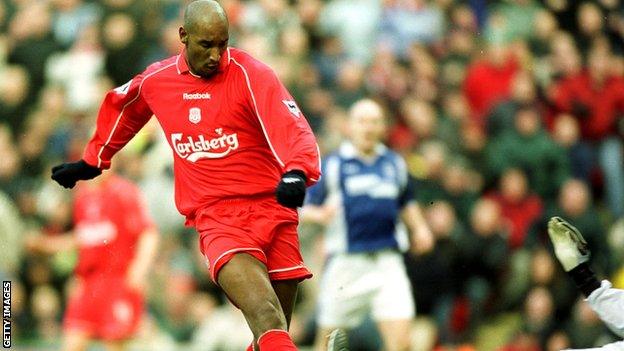
Anelka says "the spirit, the fans" were the perfect match for him at Liverpool
In 2002, Anelka joined Liverpool to play under French coach Gerard Houllier, and says it was "the perfect club" for him.
However, at the end of the season, Houllier decided not to keep him. He wasn't happy that Anelka's brothers - who manage his affairs - had contacted other clubs.
Anelka says he regrets that.
"Liverpool fans think I didn't want to stay. They need to know that that wasn't the case. That episode was tragic for me. It's a club where I could have done great things."
3. He denies anti-Semitism
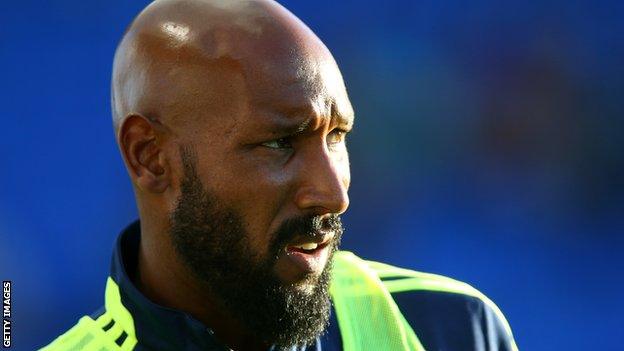
Anelka was sacked by West Brom
Probably the biggest scandal of Anelka's career came during his time at West Brom.
After doing a 'quenelle' celebration - a gesture popularised by French comedian Dieudonne M'bala M'bala, who was recently banned by Facebook for anti-Semitism, external - Anelka was suspended for five games and fined £80,000.
He responded at the time by saying the salute was "anti-establishment", rather than anti-Semitic.
In the film, Anelka claims it came about as a response to a fall-out with the manager Steve Clarke. He says he stopped speaking to Clarke after he subbed him in his first game.
With Anelka out of the side, West Brom lost their next five games. When Clarke was sacked, Anelka came back into the fold.
"I'm back in the team and the first game I play, I score. So I do this celebration," Anelka says, adding: "People don't know it because I never wanted to talk about Steve Clarke, but when I do the quenelle, it's for him."
"For me, it wasn't anti-Semitic, so I was surprised."
4. He denies insulting Raymond Domenech's mother
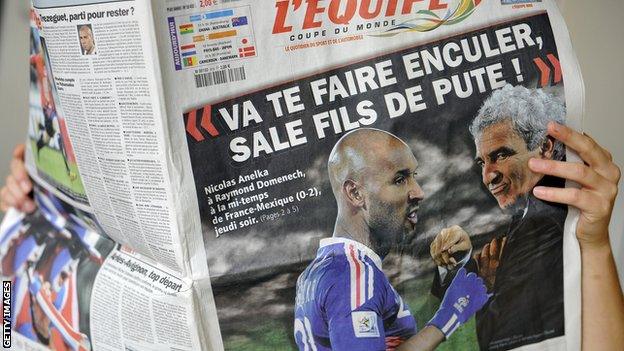
A scandal that engulfed a nation
Four years earlier, Anelka had been at the heart of another major scandal.
At the 2010 World Cup, the France squad boycotted training in protest at the French Football Federation's decision to send Anelka home, external following a row with coach Raymond Domenech. Even President Nicolas Sarkozy got involved.
Anelka never denied the row. However, he denies the expletive-laden quotes, which French paper L'Equipe printed on their front page, were what he actually said.
"People who know me know very well that if I had said what was printed by the press, I would have owned up to it," he says.
Misunderstood? Well, as the film portrays, he's a man who often bottles things up - until they erupt spectacularly - so it's hard to give a definitive answer. Viewers will reach their own verdicts.